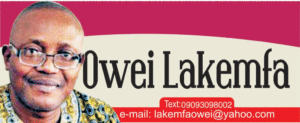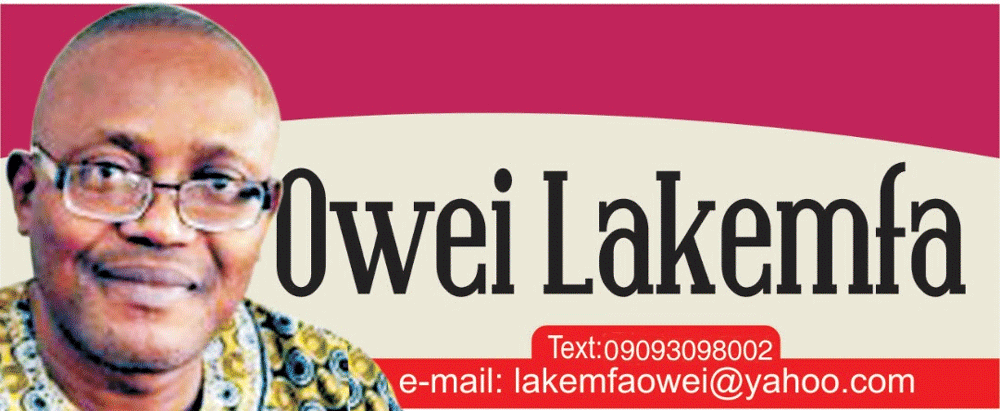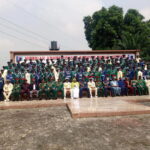

By Owei Lakemfa
STELLA Erhuvwuoghene Okotete was 33 when appointed the Executive Director (Business Development) of the Nigerian Export-Import Bank, NEXIM, in 2017. Her five-year tenure expired this year and was renewed in April for another half a decade ostensibly on account of her good performance.
Then in the past fortnight, seemingly coordinated petitions sprouted like water fountains against her continuation in office. Protests were included for added effect; and to make it more dramatic, an international flavouring was added as the petitioners included the European Union and the governments of the United Kingdom and United States as recipients.
All the petitions I have read had a thread running through them: that Okotete’s over five years appointment is in violation of the Central Bank of Nigeria circular of October 15, 2015 which prescribes a postgraduate degree and a minimum 18-year post-graduation experience.
The Benson Idahosa University she graduated from, was established in February 2002, that is 15 years before her 2017 appointment. So she clearly does not have the prescribed years of experience. The case is conclusive, or so it seems. But not quite so. The Nigerian Export-Import Bank Act No 38 of 1991 states in Section 14 (1) a that: “The bank shall be exempted from the provisions of the Banks and other Financial Institutions Act 1991.” It is under this Banks Act that the statutory 18-year postgraduate experience is required. In other words, this does not apply to the NEXIM Bank.
As far as the Managing Director, two Executive Directors and other staff go, Sections 8 and 11 of the NEXIM Bank Act empowers the President to appoint them “on the recommendation of the Governor of the Central Bank of Nigeria”.
So the petitions and protests against Mrs Okotete appear to be some drama cooked in the boiling rooms of politics. Ordinarily, they should be of no concern to other citizens since such appointments are political in the first place, but they disturb the public and divert attention from the pressing needs of the populace.
Another high drama staged in the last few days, is by the Department of State Services, DSS. After months of fuel queues across the country and watching marketers sell fuel as high as N250 per litre rather than the official price of N169, the DSS suddenly took centre stage by summoning ‘stakeholders’- wondering who in Nigeria is not a stakeholder – and declaring that: “Nigerians have every right to access fuel.”
The DSS which claims it is intervening because it has the mandate to investigate economic sabotage, including detecting and preventing threats to national security, screamed: “enough is enough.”
It, therefore, gave all the stakeholders in the oil industry a 48-hour ultimatum to ensure fuel flows unhindered from the fuel pumps. The agency said it won’t continue to tolerate the incessant fuel scarcity in the country.
The DSS in playing the lead role in this drama, rendered the flat line: “The question is if there is sufficient petroleum product, why the scarcity?” It then announced that the Nigerian National Petroleum Company, NNPC, Limited had agreed to sell fuel at the official ex-depot price to all marketers nationwide. The question is, why was the latter selling fuel to marketers above the official rate? If it was not, why is the DSS asking it to do so?
The NNPC is in charge of oil and gas and is an independent institution from the DSS. Therefore, while both institutions should consult and work together, one cannot summon the other as if it were a disobedient houseboy, chide it, publicly warn and give it an ultimatum as one would do to a kindergarten.
The boldness the secret agency is displaying, gives the impression that it knows what we the citizens don’t know. The DSS is behaving like a blind man confidently threatening to stone a man; for this to happen, the former must be standing on a stone and knows where the other person is standing.
What the DSS statutorily should have done is to apprehend the economic saboteurs and not to play the lead actor in a third rate film galloping to save the masses from bad guys holding them hostage. This whole DSS drama looks like a poorly executed public relations stunt. A diversion from the inability and incapability of government to either refine fuel for local consumption or distribute imported petroleum products.
The military added its own dimension on Thursday when the Chief of Defence Staff, CDS, General Lucky Irabor, addressesd the press in the Presidential Villa. With the gaze of the country focused on the 2023 general elections, he claimed security agencies are always under pressure to compromise elections.
Responding to a question, he said: “Of course, there will always be pressure from all quarters wanting to induce security forces, not just the military, the security force, the police. And that’s what criminal enterprise is all about.”
He added that what makes the difference is the professional approach of the military on how they should “ act before, during and after the elections; these are being codified in the SOP that have been issued to them”.
The General does not seem to be shooting straight. If there are pressures on the military regarding elections, or attempts to induce it, he should say so and expose such characters. But if this is not the case, he need not be hypothetical; silence would have been better.
Secondly, he gives the mistaken impression that soldiers have any role to play in elections apart from voting. The military as an institution does not organise political campaigns, produce ballot papers or conduct elections; so basically, it has no business in elections.
Where any insecurity arises in the elections, it is the police that is constitutionally empowered to deal with it. It is only if it is unable to do so the President drafts in the military. Given the armed insurgency, banditry and ungoverned spaces in the country, the military should be too preoccupied to have time for civil electoral matters.
If, therefore, there are politicians inducing or trying to induce the military, it is because they think it has a role to play and sway the elections in their favour. This will be because the intrusion of the military in our civil life remains pervasive.
If the military has no history or tradition of intrusion in elections, politicians would not patronise it. What is therefore primary in the electoral process is not taking soldiers through standard operation procedures; it is simply to demilitarise Nigerian politics and de-politicise the Nigerian military.
These various diversions are not in the country’s interests. Rather, we need to focus on the challenges of grinding poverty, mass illiteracy, insecurity and underdevelopment.
The post NEXIM Bank, fuel queues, election rigging and other diversions appeared first on Vanguard News.




